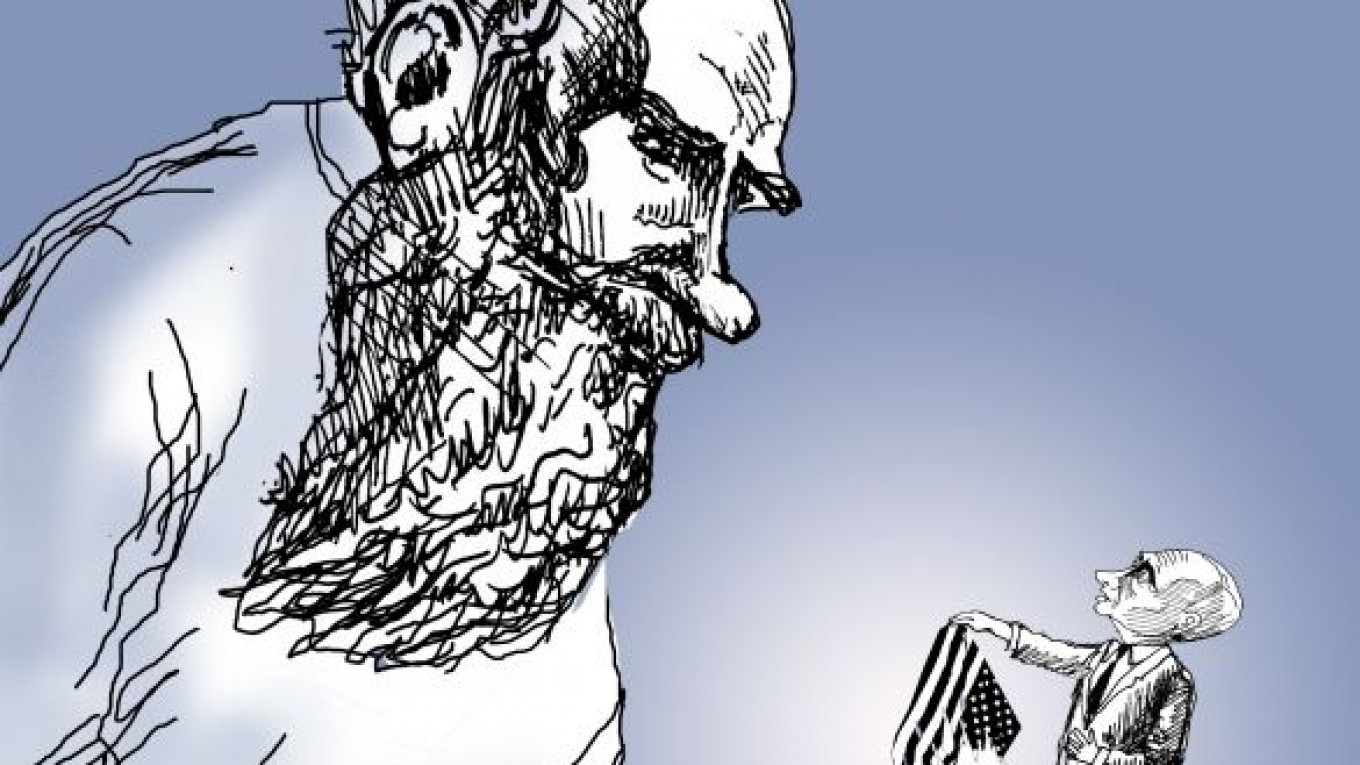Every year during the first nine days of May, as Russia prepares for Victory Day, the issue of national patriotism always takes center stage. Television programming is filled with historical documentaries about the great battles of the Great Patriotic War and kitschy miniseries with a wartime theme. During this period, the question is inevitably raised about whether Russia's brand of patriotism is healthy or destructive, positive or negative.
Leo Tolstoy perhaps gave the best definition of Russia's "true patriotism" in his epic novel "War and Peace." The main heroes bravely and selflessly defended the motherland against the French invaders in the Patriotic War of 1812. They included common Russians who answered the call of duty, as well as aristocrats like Natasha Rostova who, in the evacuation scene, sacrificed valuable family possessions after she removed them from the family's carriages to help carry wounded Russian soldiers to hospitals.
Tolstoy did not consider those deeds to be necessarily great or heroic, but rather examples of what he called "the secret warmth of patriotism." Real patriotism, particularly in a war setting, is not about showy heroics or publicly pounding your chest but simply doing what is right to defend your family and country.
Tolstoy contrasted this "true patriotism" with the "false patriotism" of the majority of 19th-century Russian aristocrats, whom he depicted as hypocritical, sycophantic and self-serving. They were more interested in advancing their careers and image than defending the country.
Today, the equivalent of Tolstoy's false patriots are Russian politicians and their loyal servants in the media who vulgarize and cheapen the country's victories against Nazi and French invaders to score political points.
Eighteenth-century English author Samuel Johnson once said false patriotism is the last refuge for scoundrels. You could say the same for "false anti-Americanism." Recall when President Vladimir Putin used his Victory Day speech in 2007 to liken U.S. foreign policy to the Third Reich — a particularly cynical display of false patriotism, considering that the United States and the Soviet Union were allies in World War II against the Third Reich.
We witnessed a particularly high dose of anti-Americanism in the months leading up to the March presidential election, when Putin called Russians who receive certain foreign grants "Judases" and claimed that tens of thousands of opposition demonstrators had taken cues from U.S. Secretary of State Hillary Clinton.
Then there was Putin's Feb. 23 pre-election speech at Luzhniki stadium — conveniently timed on Defender of the Fatherland Day for additional patriotic effect — in which he said, "Russia's battle continues." It was clear from the context of his speech, as well as the three-month anti-American campaign that preceded it, that Russia's chief "battle" is against the United States. To mobilize Russians against this enemy, Putin quoted Mikhail Lermontov's famous patriotic poem about Russia's brave resistance of the French invasion in the war of 1812: "We will die defending Moscow like our brothers died!"
During the presidential campaign, Putin's false patriotism was outdone only by the state-owned television stations — particularly NTV — which aired multiple programs accusing the United States of trying to orchestrate an Orange Revolution through purported support of Russia's opposition movement and nongovernmental organizations.
In this way, the true patriotism of the majority of Russians has been cheapened and disfigured by the Kremlin and its loyal court journalists and political analysts. Much like during the Soviet period, the Kremlin has tried to inculcate in Russians the notion that those who criticize the United States are "patriots," while those who praise the United States are "agents of Western influence" in the best case, and traitors in the worst.
As the country celebrated its 67th anniversary of Victory Day on Wednesday, many Russian intellectuals criticized the country's patriotism as being too closely linked to the images of war and enemies — both real and imagined. Victory Day is an important holiday, they say, but it plays too large a role in defining the country's patriotism and identity — much in the way that the Holocaust, some believe, has become an overly dominant feature in consolidating Jews across the globe and shaping their identity.
Russia's brand of patriotism is potentially destructive when it is based so heavily on war and enemies, because it keeps the country's national identity in the past. A more healthy patriotism would look to the future and focus on how to develop the nation.
While exploiting Victory Day for political gain is reprehensible, May 9 does celebrate the bravery of Russians against an actual enemy — one that threatened the very existence of the Soviet Union and most of Europe. This is far better than exploiting the country's patriotism by inciting hostility toward a mythical enemy, the United States. If Tolstoy were alive today, he would surely be dismayed at how much the ruling "aristocratic class" has dishonored Russia's rich tradition of true patriotism.
Michael Bohm is opinion page editor of The Moscow Times.
A Message from The Moscow Times:
Dear readers,
We are facing unprecedented challenges. Russia's Prosecutor General's Office has designated The Moscow Times as an "undesirable" organization, criminalizing our work and putting our staff at risk of prosecution. This follows our earlier unjust labeling as a "foreign agent."
These actions are direct attempts to silence independent journalism in Russia. The authorities claim our work "discredits the decisions of the Russian leadership." We see things differently: we strive to provide accurate, unbiased reporting on Russia.
We, the journalists of The Moscow Times, refuse to be silenced. But to continue our work, we need your help.
Your support, no matter how small, makes a world of difference. If you can, please support us monthly starting from just $2. It's quick to set up, and every contribution makes a significant impact.
By supporting The Moscow Times, you're defending open, independent journalism in the face of repression. Thank you for standing with us.
Remind me later.






